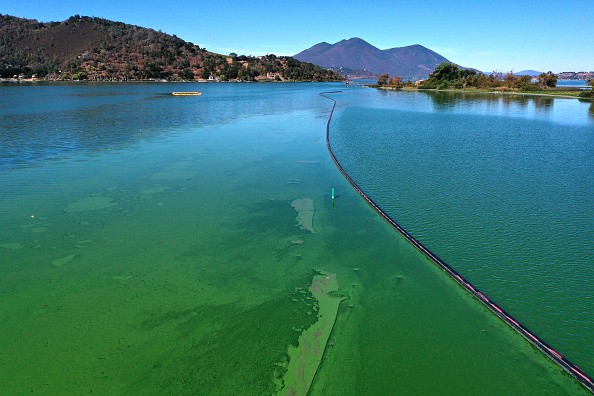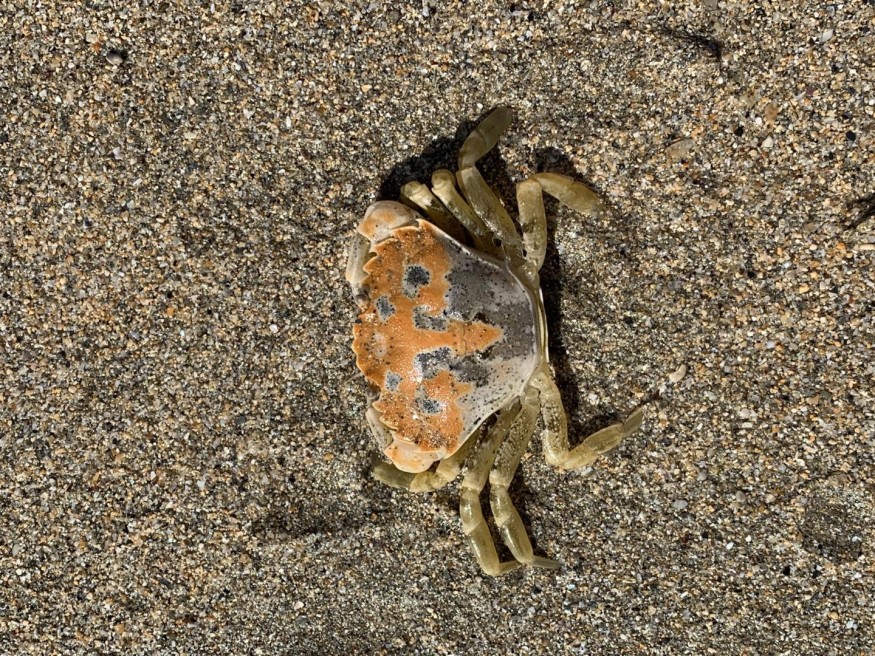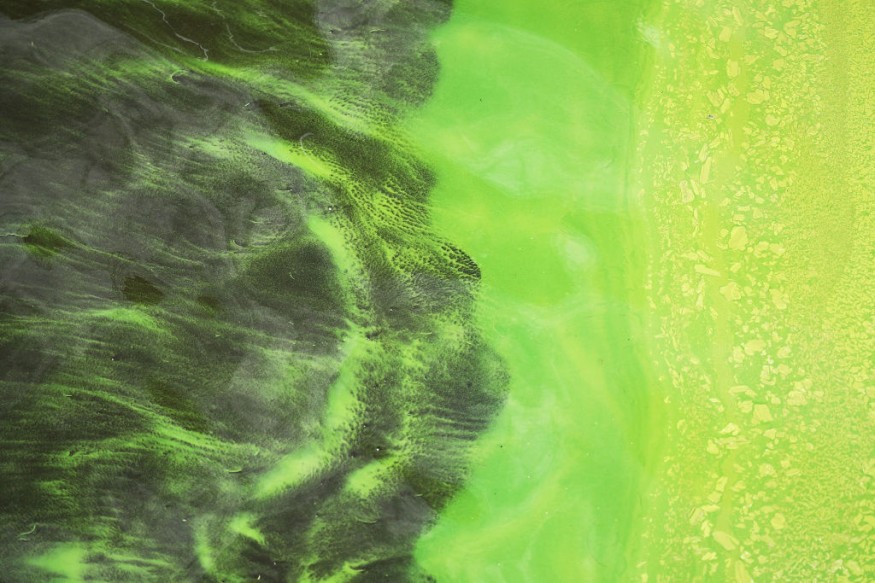Thousands of crabs and lobsters died, and a mystery dog sickness was connected to dredging for the government's showpiece freeport on Teesside - a major part of the Conservatives' post-Brexit "leveling-up" strategy.

Blaming Algal Bloom
Local fishermen have rejected the government's idea that the large mounds of dead crustaceans that began washing up on beaches along England's northeast coast in October were caused by an "algal bloom."
On Friday, a multi-agency investigation led by the Department for Environment, Food and Rural Affairs (Defra) concluded that the mass crustacean deaths, which the fishing industry claims have threatened their livelihoods and sparked fears of a collapsing ecosystem, "potentially resulted from a naturally occurring harmful algal bloom."
Algal blooms are a fast development of algae that can generate harmful toxins in the water and are sometimes identified by a colorful scum on the surface. Scientists have warned that they are growing increasingly common and detrimental worldwide and that they may be related to the global climate catastrophe.
"There is no factual evidence to support the assumption that it has anything to do with an algal bloom," said Tim Deere-Jones, an independent marine pollution specialist and report author.
Instead, Deere-Jones, a consultant with 30 years of experience in dredging issues, claimed that data obtained through freedom of information requests to Defra and other government agencies linked the mass deaths to a specific chemical, pyridine, which can be released into the environment as a waste product from industrial processes.
"At this time, the data points to pyridine as a probable cause of death," he stated. His findings hint at several possible sources of pyridine discharge to the estuary, some of which may date back decades yet have become deeply lodged in the seafloor.
Related Article : Hundreds of Americans Hospitalized in Recent Years Due to Toxic Algae Blooms, Says CDC
Studying the Dead Crabs

While Defra stated that "any levels [of pyridine] detected in crab tissue are likely to be linked to biological processes and not necessarily from the environment," Deere-Jones pointed out that while samples from control crabs collected in Penzance contained just under 6mg per kilogram of the toxic chemical, the Saltburn crabs had over 400mg per kg.
Defra, which examined satellite data showing an algal bloom along the coast in late September 2021, dismissed this hypothesis, stating that "chemical contamination, sewage, or infectious aquatic animal illnesses were unlikely to be the cause of the deaths."
According to the agency, there was also no evidence relating to recent reports of dead seals, the mysterious dog ailment that caused vomiting and diarrhea during walks along the coast in January, or the hundreds of dead sea birds washing up in October.
Study Findings
The North East Fishing Collective, a consortium of commercial fishing organizations, angling clubs, environmentalists, and stakeholders throughout England's north coast, has slammed the explanation as "absolute nonsense."
The organization claims that the recent events on the east coast have "dramatically touched" them all. Our earnings have been reduced, our livelihoods have been jeopardized, and our ecosystems have deteriorated."
Fishers from Hartlepool to Scarborough claim crab and lobster catches are down 80 percent to 95 percent, and dead crabs and lobsters were recorded last week in Saltburn and Maske, which they believe were not caused by an October algae bloom.
Taking Action

Following a demonstration in November, the organization launched crowdfunding and hired Deere-Jones to look into the matter.
They've demanded more research into the high amounts of pyridine detected in crabs, as well as an immediate halt to dredging in the Tees, where one vessel conducted a year's worth of dredging in 10 days, according to them.
"Our sampling proved that no pyridine was found in the water or sediment samples we obtained," a Defra spokeswoman stated. "However, pyridine was discovered in crab tissue from both impacted and non-impacted regions elsewhere in the UK."
For more environmental news, don't forget to follow Nature World News!
© 2025 NatureWorldNews.com All rights reserved. Do not reproduce without permission.





